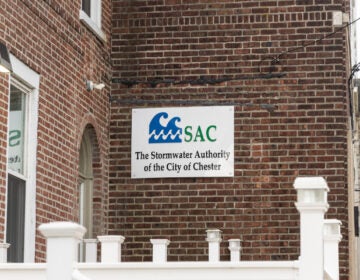Scams, big bills and bargains: Why Pa.’s public water officials won’t stop talking
Facing the rising prospect of privatization, the remaining public water officials in Philadelphia’s suburbs take pride in holding out and keeping water bills low.
From Delco to Chesco and Montco to Bucks, what about life in Philly’s suburbs do you want WHYY News to cover? Let us know!
If Tony Bellitto, 63, had it his way, his customers living in the heart of Montgomery County wouldn’t know his name.
However, recent instances of giant water companies aggressively trying to wrest control of public companies have thrust the executive director of Lansdale-based North Penn Water Authority into the public eye. Bellito’s testimony before the Pennsylvania legislature went viral in December 2023.
More than five million people witnessed him calling water privatization a “scam.” The growth of investor-owned water companies has led to skyrocketing water bills. The Bronx native said it’s by design.
“The process of that takeover will result in personal financial gain for those top executives that run those companies, and that’s their incentive,” he said. “They’re gonna put more money in their pocket and they’re not concerned about all the money that’s going to come out of the pocket of all those customers.”
Approximately 90% of Americans get their drinking water from public systems like NPWA. But in Pennsylvania, the tide is changing.
In 2016, Pennsylvania lawmakers passed Act 12, creating a process to determine the value of a public water system, including its assets, expected revenue and potential repair costs. Private water companies have used the process to capture the attention of municipalities, dangling massive short-term acquisition prices. Ratepayers end up covering those costs in the long run through high water bills.
The Pennsylvania Public Utility Commission approved nearly two dozen acquisitions since the law’s passage, turning Bellitto into somewhat of an icon in Philadelphia’s suburbs.
Bellitto and a few others believe the solution to municipal water woes is consolidating together rather than handing over the reins to investors.
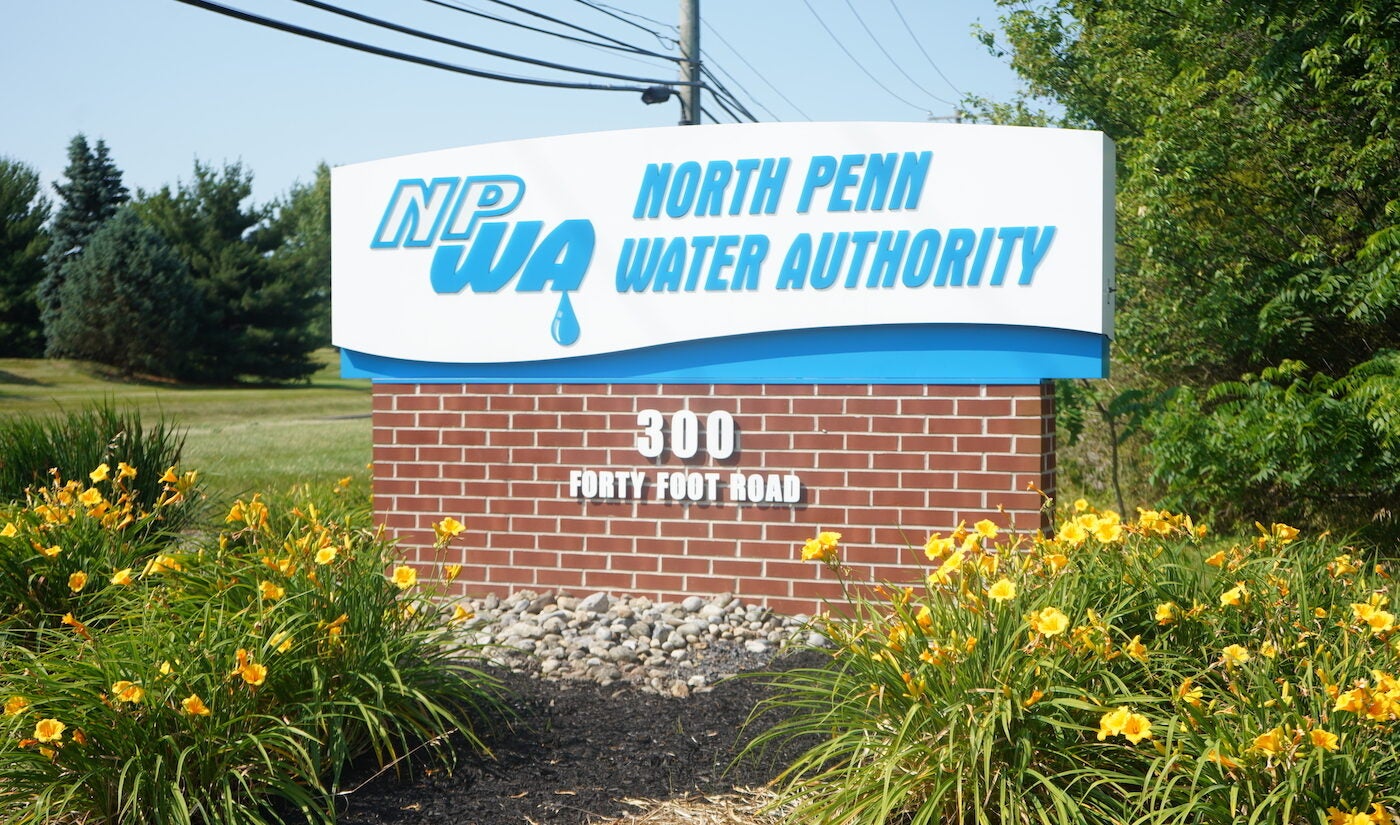
Is public consolidation the counter to Pa. water privatization frenzy?
NPWA is a product of municipal consolidation. Bellitto refers to this as “regionalization.”
“What makes us unique is that we are a regional entity,” he said. “We have a combination of 10 municipalities that are part of our owners, that’s seven townships and three boroughs.”
NPWA provides drinking water to 10 additional municipalities. Prior to the authority’s creation in 1965, each borough or township generally relied on its own small water systems.
Predicting the growth of the suburbs, Lansdale and Souderton moved to combine their infrastructure. Neighboring localities saw the benefit and followed suit.
“One of the biggest obstacles, which has been overcome, is the realization in the 70s and 80s that a limited groundwater system would not be sustainable for the future,” Bellitto said.
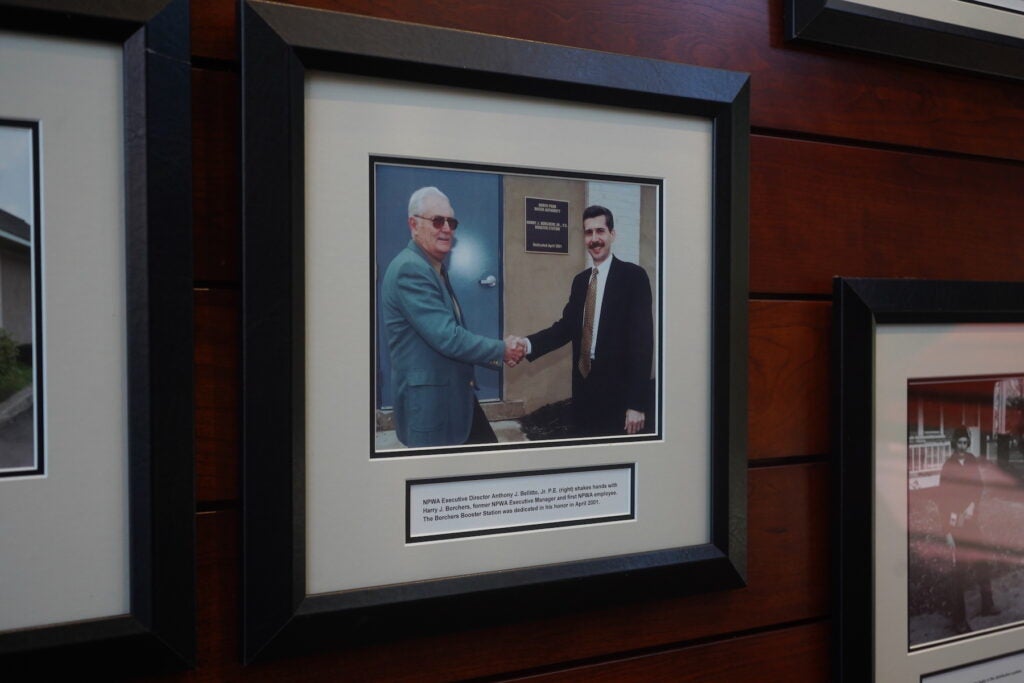
Today, NPWA employs 52 full-time staff members, serving approximately 36,000 customers. The authority controls about 600 miles of water main. Both NPWA and the North Wales Water Authority rely on Lake Galena and the Forest Park Water Treatment Plant located in Chalfont for most of their supply.
Bellitto said the bar for excellence is higher than ever before. With constantly changing water quality standards and new federal restrictions on toxic “forever chemicals,” the cost of keeping up can be a heavy burden.
He believes this is where regionalized public consolidation can help.
“We took over the Sellersville system in 2011,” Bellitto said. “This is a prime example of a municipal system that was small, that was troubled, that had difficulties and they said ‘we don’t want to continue to operate this system.’”
NPWA was able to absorb Sellersville and maintain economical service. On average, its customers pay $1 per day for their water.
“There is no other cost that our customers incur on a daily basis for their household that costs the same or less than public water — a dollar per day,” Bellitto said. “You can’t go to Wawa and buy a cup of coffee for three bucks.”
He invites other public systems to consider the authority model or explore joining up with NPWA.
Bellitto has been speaking with state legislators to make the case against Act 12.
“The objection that we have to Act 12 and the whole larger issue of privatization is that although it makes sense when privates target small distressed systems, the reality is that in the past eight years since 2016, they’ve really focused on the opposite which is not distressed systems — large or medium-sized, well-run, well-operated, financially stable systems that have no water quality issues and are not in need of any help from anywhere,” Bellitto said.
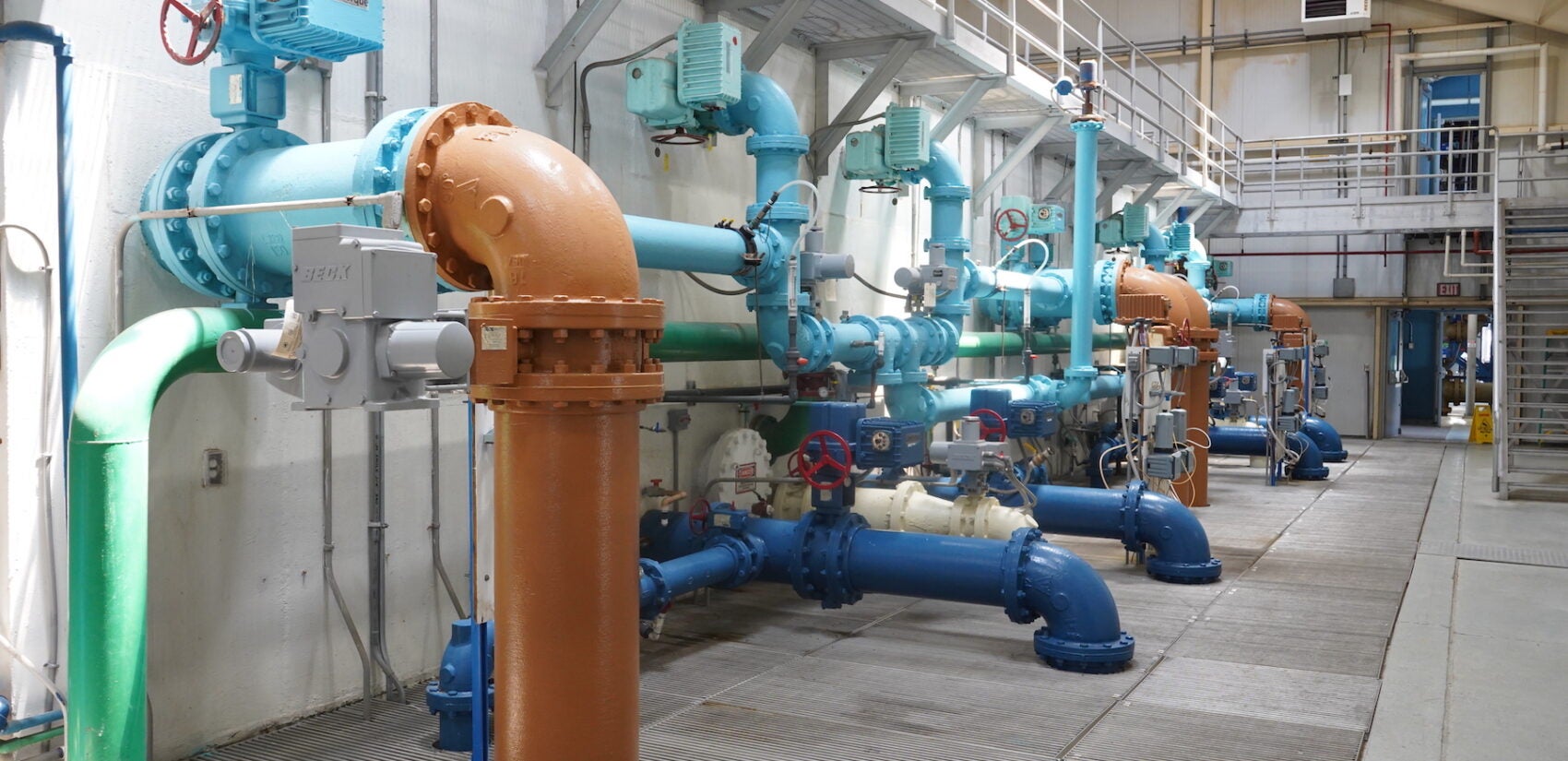
What happens when a ‘cash cow’ opposes its own sale?
Since 2017, Aqua Pennsylvania has been enamored with acquiring the Chester Water Authority (CWA) from the bankrupt city that created it in 1939.
Based in the city of Chester, the CWA is one of the region’s biggest public water systems, serving more than 200,000 people across 37 municipalities in both Chester and Delaware counties.
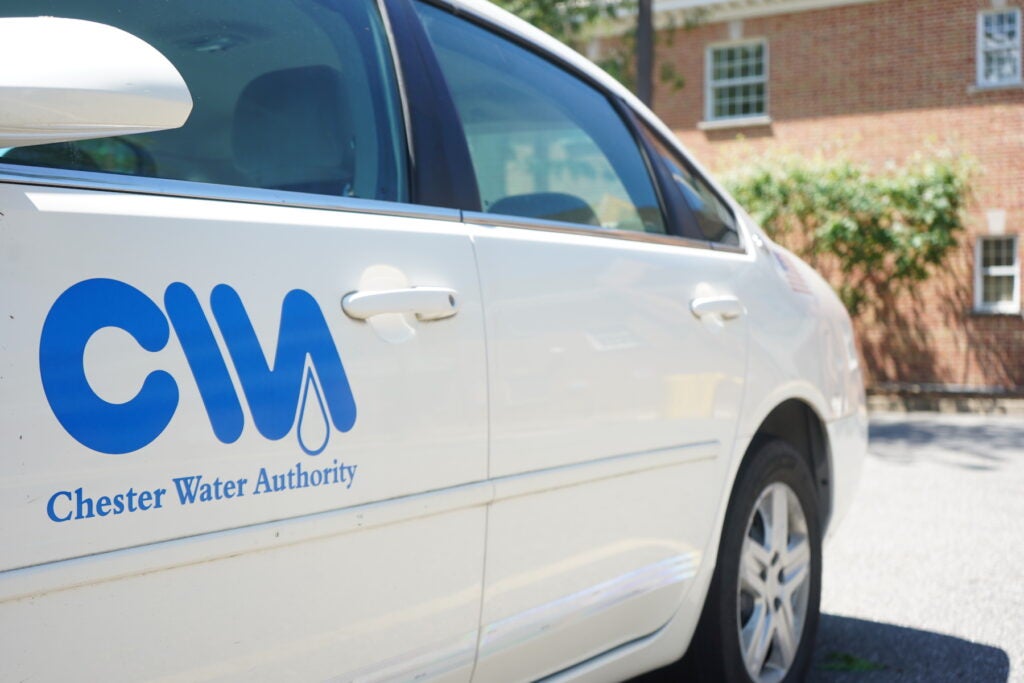
Infatuated with the large customer base, Aqua floated a $410 million offer to the cash-strapped city. CWA, however, objected and launched a legal fight to fend off privatization.
CWA attorneys have argued that it is an independent entity from Chester and thus cannot be unilaterally sold. The Pennsylvania Supreme Court is currently looking over the case.
CWA board chair Noël Brandon, 65, argues that none of this minutiae should matter.
Their cash flow and water is just fine.
“Operationally, we’re an award-winning entity,” Brandon said. “We’ve won the best-tasting water award for the last two years. We also been part of American Water Works Association’s Safe Water Partnership and have been recognized for the last 20 years doing that.”
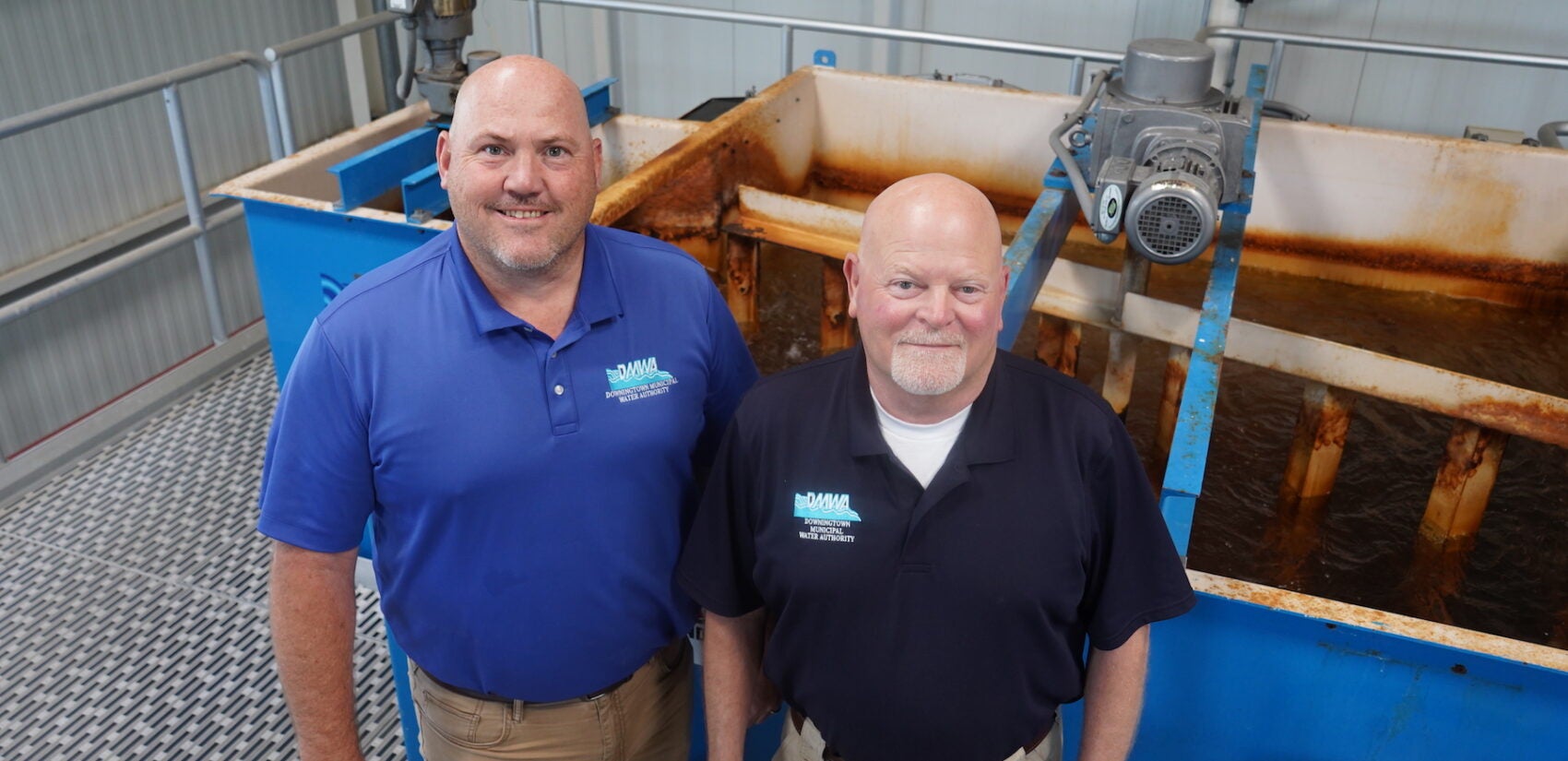
With an annual operating budget of around $50 million, CWA is larger than the NWPA. The approximately 130 employees all report to the five department heads, who in turn report to executive manager Darryl Jenkins.
Jenkins, 60, said coming to work at the CWA has become the “capstone” of his career. He said infrastructure is not the only thing getting old.
“All public water suppliers, whether investor-owned or municipal, face an aging workforce, and we’re seeing troubles and trying to replace those workers because of the technical demands of the job,” Jenkins said.
However, while smaller utilities may not have the financial wherewithal to be creative with budgets and staffing, Jenkins said CWA is ahead of the curve.
“We have short-term and long-term capital improvement plans,” Jenkins said. “We run this authority just like a business, but the only thing that we don’t do is require a profit at the end of the day.”
Brandon said municipal consolidation is both a cost-effective and realistic option for struggling water authorities.
“The reason why it’s feasible is because now you have a lot more people to be able to contribute affordably to maintaining the infrastructure which is quite vast,” Brandon said. “We have been doing a successful job and how do we know that? If you check our rates, it’s among the lowest in this area. In fact, it’s among the lowest in Pennsylvania.”
Brandon said a well-run public water system is a “cash cow” for private investors.
Water is invaluable and Jenkins said he takes caring for the resource personally.
With climate change plus an aging infrastructure adding pressure to the supply, Jenkins believes a publicly operated system is best equipped to deal with those issues while keeping water affordable.
“We have no profit incentive,” Brandon said. “We have no investor pressure. We’re just doing all the best practices in making it work.”

The inevitability of consolidation — privatized or otherwise
For some municipally-owned systems, public consolidation might no longer be an option. Downingtown Municipal Water Authority is surrounded by Pennsylvania American Water and Aqua Pennsylvania.
If it were 20 years ago, finding a public system to enjoin with would be a realistic endeavor.
But today, as the lone public system in this portion of Chester County, that solution is probably out of reach.
“We’re struggling to keep our rates low and provide the best product we can,” DMWA executive director Steve Sullins said. “Now, how long is that going to last? I don’t know.”
Despite Aqua approaching the authority “many, many” times to sell, Sullins still sees the importance of the system remaining in public hands.
“My belief is the value of this authority well outweighs the sale price of what they offer up front,” Sullins said.
The Borough of Downingtown owns DMWA and its assets, so it’s not his job to decide on a sale. However, he makes it a point to convince decision-makers of his point of view.
DMWA has gotten creative in generating revenue. It owns property and leases it for parking. It sells water in bulk to swimming pool owners.
The plant spends hundreds of thousands of dollars on gas and electric bills to treat the water each year. Officials are looking into running their plant on solar power, cutting down those costs.
At the same time, however, the plant is aging. Sullins said, “everything is just getting tired.” He believes consolidation will eventually have to happen. He’s just unsure who will answer the call.

Bellitto, from North Penn, is no Beyoncè. He can still manage to go to the grocery store without being blitzed by the paparazzi. But when people talk about his product, he’s one of the first people on the front lines.
“It’s a bad day when our customers are thinking about the water,” Bellitto said.
He encourages other public water officials to speak up.
“If we don’t waive our own flag and if we don’t blow our own horns, people are going to see all the negative news that’s out there and perhaps come to an inappropriate conclusion — that maybe they can’t trust the water that’s coming out of their faucet,” Bellitto said.

Get daily updates from WHYY News!
WHYY is your source for fact-based, in-depth journalism and information. As a nonprofit organization, we rely on financial support from readers like you. Please give today.



